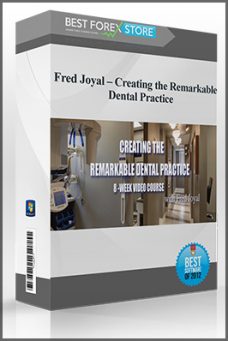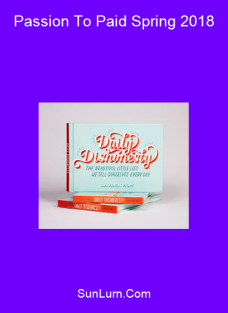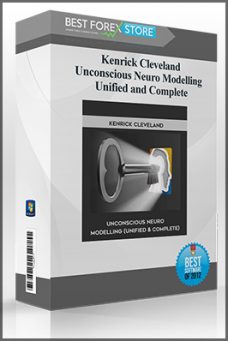
- Description
Description
Brian Mowll – The Diabetes Summit 2018
What we are doing now to treat diabetes needs to change — it doesn’t work. Billions of dollars of research and more than 70 drug options, and we still don’t solve the root cause! With the right education and action, it is absolutely possible to save the lives of those who are on their way to diabetes or who have already been diagnosed with it.
Struggling with metabolic syndrome, prediabetes, or type 2 diabetes? These talks to find out:
– The root causes of diabetes and problems with blood sugar
– The level of sugar in the blood and your brain, gut, immune system, heart, hormones and weight
– Natural solutions to underlying imbalances new research on environmental toxins, EMF, and other factors
– How to protect your heart, kidneys, eyes, brain and sexual function
“And again!
This is why most people buy these expert conversations:
– Support our mission to deliver this information to those who need it most
– Missed talks they just can’t stand missed conversations
– Want to save and rewrite this life-changing information
– Do you prefer to read transcripts or listen to audio recordings
– Want to share this information with your friends, family, and healthcare professionals
– Get access to bonus aegis, e-books and discounts from experts
Despite billions of dollars spent on pharmaceutical research, diabetes rates continue to rise. In addition, more than 70 diabetes medications are prescribed in the United States alone – none of them address the root causes or stop the progression of the disease. What we are doing now has to change, because it doesn’t work. With the right education and action, it is absolutely possible to change and save the lives of those on the path to diabetes.
What you will learn on this top:
+ The root causes of diabetes and problems with blood sugar
+ Blood sugar and your brain, gut, immune system, heart, hormones and weight
+ Natural solutions to underlying imbalances
+ New research on environmental toxins, EMF and other factors
+ How to protect your heart, kidneys, eyes, brain and sexual function
Day 1: April 23, 2018
-How emotional hormones play a role in diabetes-Razi Ann berry
– Your genetic code and diabetes-Ben Lynch, new York
– Hypothyroidism and diabetes: What you need to know-Isabella Wentz, PharmD, FASCP
– Advanced blood sugar regulation factors-Evan Brand, BCHN, CFMP, NTP
– Essential oils for health promotion and metabolism support-Eric Zielinski, DC, MPH(c)
Day 2: April 24, 2018
– The role of the gut in healing and reducing inflammation – Kellyanne Petrucci, MS, ND
– Expert discusses gluten, gluten, cereals and diabetes – Peter Osborne, DC, DACBN, data
– Autoimmune syndrome as a biomarker of chronic diseases-Tom o’bryan, DC, CCN, DACBN
– Overcoming food addiction to increase blood sugar-Susan pierce-Thompson, Ph. D.
– Natural medicine and diabetes-Michael Murray, new York
Day 3: April 25, 2018
– Using sugar detoxification to overcome carbohydrate cravings-David Jockers, DNM, DC, MS
– Blood sugar, Diabetes and cardiovascular health-Jack Wolfson, DO, FACC
– Can I Lose Weight Without Dieting? – Melissa Catherine, CHN
– The importance of the liver in type 2 diabetes-Alan Christianson, NMD
– Using essential oils to suppress sugar cravings – Marisa Snyder, DC
Day 4: April 26, 2018
– Secrets of improving blood sugar levels and metabolic health-Frank Lipman, doctor of medical Sciences
– Overcoming sugar addiction by understanding your true hunger – Cynthia Pasquella-Garcia
– Hormesis, health and diabetes – Ari Whitten
– Using the success mindset to achieve optimal health-Ben Lerner, DC
– Women’s hormones, blood sugar, metabolic problems and type 2 diabetes – jolene Brighten, new York
Day 5: April 27, 2018
– Eat, Stop, eat: intermittent fasting for diabetes-brad Pilon
– Studying Nutrition Through Self-Experimentation-Sam Feltham
– The level of blood sugar, insulin resistance, diabetes and your brain-Stephen Masli, doctor of medical Sciences, VACHA
– Take control of your health, blood sugar and life-Partha Nandi, MD, FACP
– Healing products and activities for vibrant health-Erin Nielsen, PT, CHC
Day 6: April 28, 2018
– A natural approach to type 1 and 2 diabetes-Mona Morstein, ND
– Understanding PCOS and insulin resistance-Robin Nielsen
– Functional diagnostics in diabetes support-reed Davis, SNO-P, CMTA
– EMF and its impact on health and blood sugar – Nicolas Pinault
– Linking toxins to diabetes and metabolic problems-Joseph Pizzorno, new York
Day 7: April 29, 2018
– Mold, mycotoxins, Gut health and blood sugar – Jill Carnahan, MD, ABFM, ABIHM, IFMCP
– How your body produces, regulates and uses insulin-Jodi Stanislav, ND, CDE, PWD
– Ketogenic diet for type 1 diabetes-Keith Runyan, MD
– Low-carb diabetes care in family practice-Jeffrey N. Gerber, MD, FAAFP
Health and medical course
More information about medical care:
Medicine is the science and practice of establishing the diagnosis, prognosis, treatment, and prevention of diseases.
Medicine includes a range of medical practices designed to maintain and restore health through the prevention and treatment of diseases.
Modern medicine uses biomedical science, biomedical research, genetics, and medical technology to diagnose, treat, and prevent injuries and diseases,
usually through pharmaceuticals or surgery, but also through a variety of treatments such as psychotherapy, external Splints and traction, medical devices, biologics, and ionizing radiation, among others.
Medicine has existed for thousands of years, during most of which it has been an art (an area of skill and knowledge) often associated with religious and religious practices.
philosophical views of the local culture. For example, a healer used herbs and said prayers for healing, or an ancient philosopher and doctor used bloodletting in accordance with the theories of humor.
In recent centuries, with the advent of modern science, much of medicine has become a combination of art and science (both fundamental and applied, under the auspices of medical science).
While the technique of stitching is an art learned in practice, the knowledge of what is happening at the cellular and molecular levels in the tissues being stitched is due to science.








